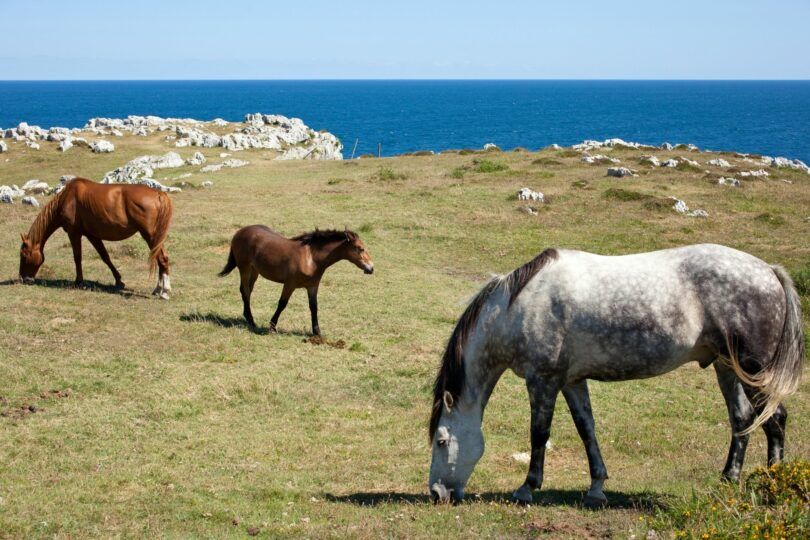Vomit can actually be helpful…
Humans and dogs puke, so why can’t horses? Throwing up is a normal part of life for most animals, but it’s something that is physically impossible for horses.
The equine digestive system has evolved over time to have a unique connection between their esophagus and stomach. This valve makes vomiting impossible. This may have developed as an evolutionary advantage to survive famine or to prevent vomiting while running from a predator on a full stomach.
Unfortunately, the inability to vomit may contribute to why horses colic. If you can’t vomit, you can’t burp, so gas only has one way out of a horse’s system.
It’s Physically Impossible
Horses have a few differences that make throwing up impossible. One difference is that the muscle at the bottom of their esophagus is stronger.
This means no amount of pressure from the stomach can force it open.
Also, the stomach and the esophagus join at a low angle, so when gas is present, it presses against this junction and makes the closing even tighter.
Why would horses evolve this way?
No one knows for sure, but it could be a survival mechanism. Wild horses need a LOT of grass every day to survive, and sometimes it’s in short supply (meaning being able to throw up what little they did eat could lead to starvation).
Additionally, horses are prey animals. Because of how they are put together, when they run, their intestines move forward and backwards, pounding against the stomach. Normally, this type of motion would cause an animal to throw up, but horses are exempt because they physically cannot. This is probably a useful mechanism when running from predators!
Some animals vomit to eject toxins from their system. Fortunately, horses have evolved to be picky eaters, so they’re unlikely to accidentally ingest anything toxic.
Colic in Horses
Colic is a term for abdominal pain. It is commonly caused by gas buildup (in a person, this is similar to feeling bloated).
Cases can range from mild to deadly, depending on a few factors like how much gas is stuck and where.
Photo Cred: Canva
How does the inability to throw up affect when horses colic?
Because horses can’t throw up, they also can’t expel gas from their stomachs through their mouths. This means gas has to travel through a very long digestive tract to be released.
Frequently Asked Questions
Q: What is ‘choke’ in horses?
Choke happens when food or some other object gets stuck in your horse’s throat. It most commonly happens when a horse eats large amounts of dry grain quickly.
Wetting it down or feeding smaller portions is a great preventative.
Q: What other animals cannot vomit?
Most rodents, including mice and rats, as well as rabbits, can’t vomit.
Q: Can horses burp?
Nope! The same mechanisms that allow for vomiting also control burping.
Photo Cred: Canva
Parting Thoughts
While vomiting may have its uses, like feeding young animals or eliminating toxins, it’s a feature that horses must not have needed. This one-way design of the sphincter at the base of the esophagus is why other issues, like choke and colic, may happen more often than in other animals.
If your horse looks uncomfortable, isn’t eating, or hasn’t pooped, he may be colicing. While most cases will resolve on their own, always call your vet as soon as you notice symptoms.
P.S. Enjoy this article? Trot on over to:
- Horse Hay FAQs: List of Types of Hay, What Hay is Best, etc.
- Food or Foe: What Do Horses Eat (And Why)
- How Horses Sleep: A-Zzz Guide to Equine Rest
- Daily Horse Care Made Simple (Quick-Print Checklist)
- Horse Lifespan 101 (Life Stages, Teeth, Senior Horse Care)
